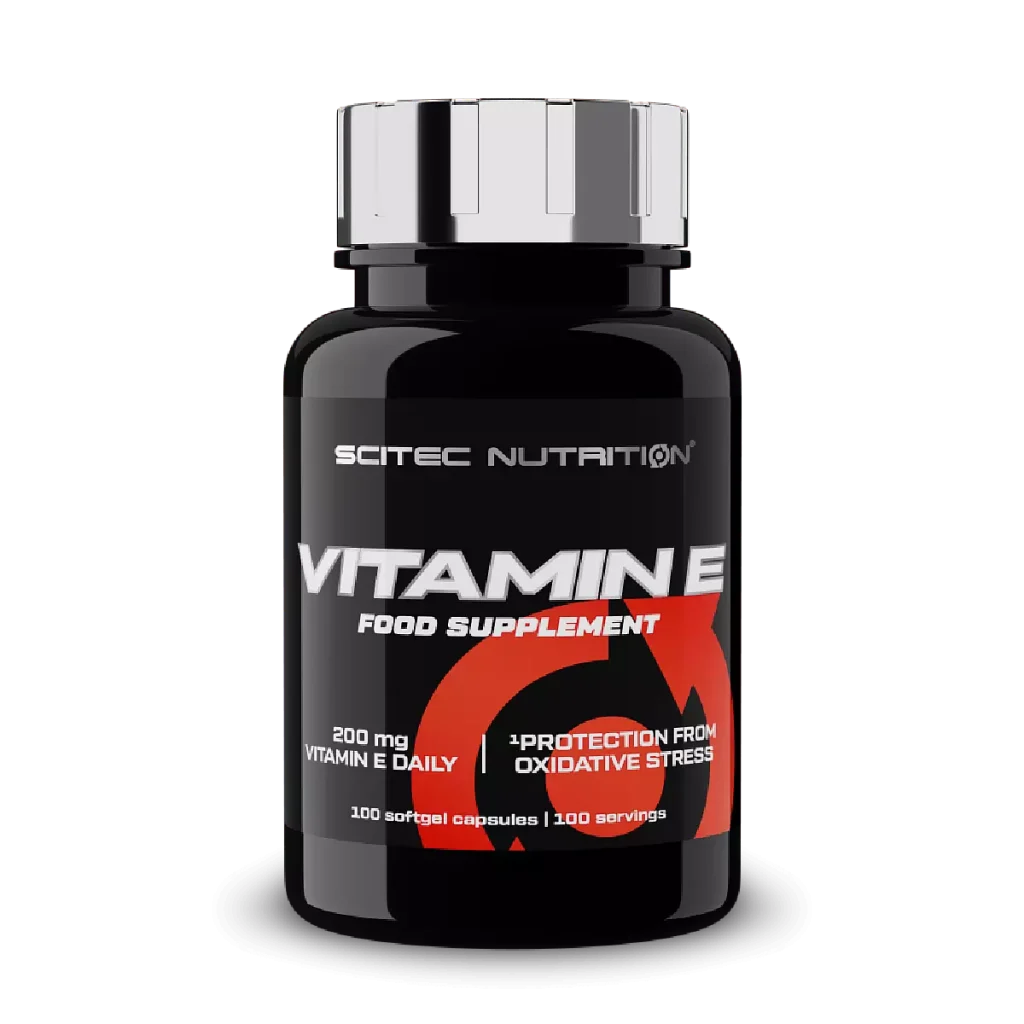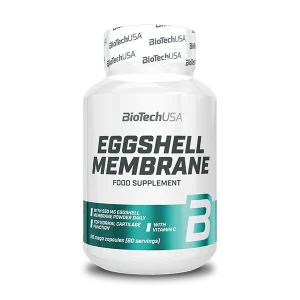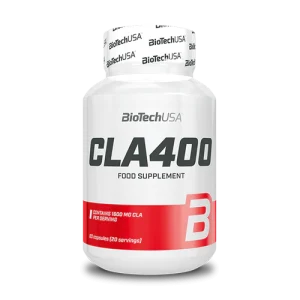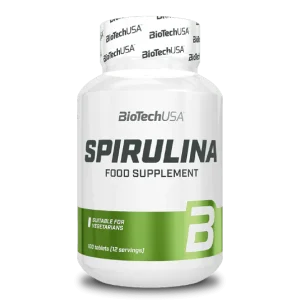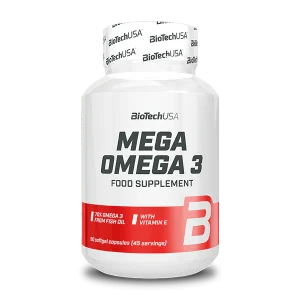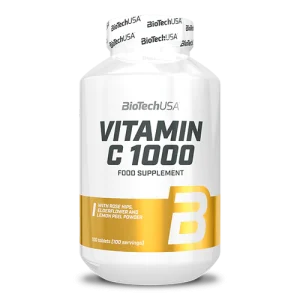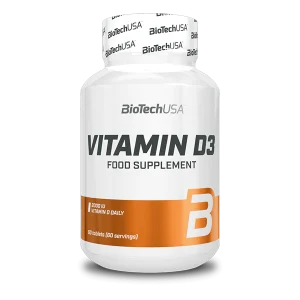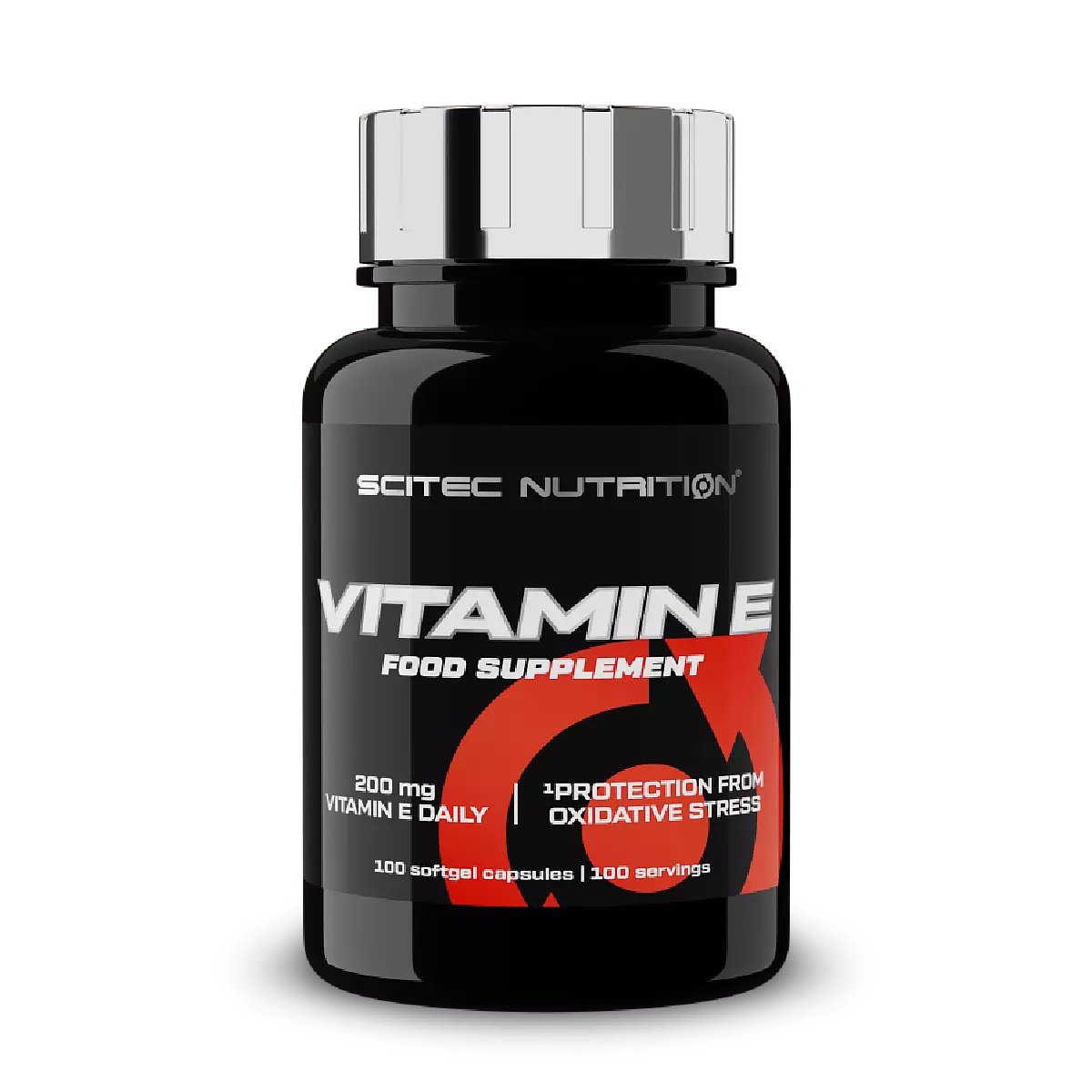
Scitec Nutrition
Scitec Nutrition is a European company that specializes in the development and manufacturing of sports nutrition supplements. Here are some general points about Scitec Nutrition:
- Company Background:
- Scitec Nutrition is a Hungarian company that was founded in 1996. It has since become one of the leading brands in the sports nutrition industry.
- Product Range:
- Scitec Nutrition offers a wide range of sports supplements, including protein powders, pre-workout formulas, amino acids, weight gainers, vitamins, and other nutritional products. Their products are designed to support various fitness goals, such as muscle building, recovery, and overall performance enhancement.
- Quality Control:
- The company emphasizes the importance of quality control and uses advanced manufacturing processes to ensure the purity and effectiveness of their products. They often highlight the use of high-quality ingredients in their formulations.
- International Presence:
- While based in Hungary, Scitec Nutrition has a global presence, distributing its products to numerous countries. It is known for having a strong presence in the European sports nutrition market.
- Customer Reviews and Reputation:
- Like any company, Scitec Nutrition’s reputation can be assessed through customer reviews and feedback. Positive reviews often highlight the effectiveness of their products, while negative reviews may address issues such as taste preferences or individual reactions.
It is recommended to check Scitec Nutrition official website or contact them directly for the most current and detailed information about their products.
What Is a Vitamin?
Vitamins are organic compounds that are essential for the normal functioning of the human body. These are micronutrients, meaning they are required by the body in relatively small amounts but are crucial for various physiological processes. Unlike macronutrients (such as carbohydrates, proteins, and fats), the body cannot produce vitamins in sufficient quantities, so they must be obtained through the diet.
Vitamins play a vital role in a wide range of biological functions, including metabolism, immune system function, and maintaining the health of tissues and organs. Each vitamin has specific functions, and a deficiency or excess of any particular vitamin can lead to various health issues.
There are two main types of vitamins:
- Fat-Soluble Vitamins: These vitamins dissolve in fat and are stored in the body’s fatty tissues. They include:
- Water-Soluble Vitamins: These vitamins dissolve in water and are not stored in the body to the same extent as fat-soluble vitamins. They include:
- Vitamin C (ascorbic acid)
- B-vitamins (B1, B2, B3, B5, B6, B7, B9, B12)
It’s important to maintain a balanced diet that includes a variety of foods to ensure an adequate intake of vitamins. While vitamin supplements can be beneficial in cases of deficiencies or certain health conditions, they should be used under the guidance of healthcare professionals, as excessive intake of certain vitamins can lead to toxicity.
Advantages and Disadvantages of Taking Vitamin E
Vitamin E is a fat-soluble antioxidant that plays a crucial role in protecting cells from damage caused by free radicals. Here are some advantages and disadvantages of taking Vitamin E:
Advantages of Taking Vitamin E:
- Antioxidant Properties:
- Vitamin E is a potent antioxidant, which means it helps neutralize free radicals in the body. This antioxidant activity may contribute to the prevention of oxidative stress and cellular damage.
- Skin Health:
- Vitamin E is often used in skincare products for its potential benefits in promoting skin health. It may help in reducing the signs of aging and protecting the skin from damage caused by UV rays.
- Heart Health:
- Some studies suggest that Vitamin E may have a positive impact on cardiovascular health by reducing oxidative stress and inflammation. It may also contribute to maintaining healthy blood vessels.
- Immune System Support:
- Vitamin E plays a role in supporting the immune system. It helps maintain the integrity of cell membranes and may enhance the function of certain immune cells.
- Eye Health:
- Vitamin E, along with other antioxidants, may play a role in protecting the eyes from age-related macular degeneration (AMD) and cataracts.
Disadvantages of Taking Vitamin E:
- Potential for Overdose:
- While Vitamin E is generally considered safe when consumed in recommended amounts, excessive intake through supplementation can lead to vitamin E toxicity. This can cause symptoms such as nausea, diarrhea, and an increased risk of bleeding.
- Interaction with Blood-Thinning Medications:
- Vitamin E can have anticoagulant effects and may increase the risk of bleeding, especially when taken in high doses. Individuals taking blood-thinning medications should exercise caution and consult with a healthcare professional.
- Limited Evidence for Disease Prevention:
- While some studies suggest potential benefits, the evidence supporting the role of Vitamin E in preventing certain diseases, such as cardiovascular disease or cancer, is not conclusive. More research is needed to establish clear links.
- Digestive Issues:
- High doses of Vitamin E supplements may cause digestive issues such as diarrhea and stomach cramps in some individuals.
- Interaction with Certain Health Conditions:
- Individuals with certain health conditions, such as bleeding disorders or diabetes, should be cautious with Vitamin E supplementation and consult with their healthcare provider.
- Variability in Forms of Vitamin E:
- Vitamin E exists in various forms, and the effectiveness of different forms can vary. Some studies suggest that certain forms, such as alpha-tocopherol, are more bioavailable than others.
It’s important to note that obtaining Vitamin E through a balanced diet that includes nuts, seeds, vegetable oils, and green leafy vegetables is generally considered safe. As with any supplement, it’s advisable to consult with a healthcare professional before starting Vitamin E supplementation, especially at higher doses. Individual needs may vary based on age, health status, and other factors.
Ingredients
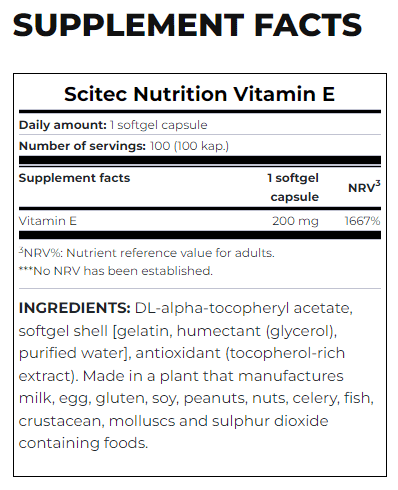
Vitamin E a.k.a Tocopheryl Acetate
Vitamin E, known as tocopheryl acetate in cosmetic and skincare formulations, is a fat-soluble antioxidant crucial for maintaining skin health.
Renowned for its protective properties, it combats free radicals generated by environmental factors like UV rays and pollution. Tocopheryl acetate is a common ingredient in skincare products due to its moisturizing effects, contributing to skin hydration and suppleness. Recognized for potential anti-aging benefits, it may reduce the appearance of wrinkles and promote natural healing processes. Widely used in creams, lotions, and serums, tocopheryl acetate is generally safe for topical application, though individuals with allergies should exercise caution.
Patch testing is recommended to ensure compatibility, and consultation with a healthcare professional is advisable for specific skincare concerns.
For more detailed information on Vitamin E, please click here.
Available Forms
Vitamin E by Scitec Nutrition is available in one size only: a bottle with 100 softgel capsules/100 servings.
